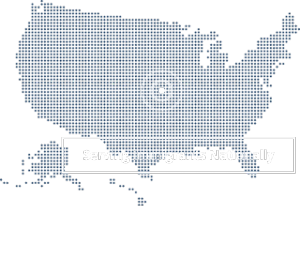Getting a waiver or pardon when applying for a green card
Immigration Waivers of Unlawful Presence, Fraud, and Crimes
Getting a waiver or pardon when applying for a green card
Do I need a waiver to get a green card?
Often non-citizens need waivers, or pardons, in order to get a green card. This is because they may be subject to one or more bars to inadmissibility. Here we’ll review the most common reasons someone may need a waiver before he or she can receive a green card.
You’ll want to find out as early as possible if you will need a waiver, and if one is available. A qualified immigration attorney can help determine this. Don’t wait until you’ve already submitted an application before learning that you’re inadmissible.

The Steps to getting a Family Based Green Card
Firstly
First, someone may need a waiver because he or she has been present in the U.S. illegally for a certain period of time. Unlawful presence before April 1, 1997 does not count against you. Neither, in some instances, does time spent in the U.S. under the age of 18. Nor when you have a bona fide asylum application pending.
Secondly
Second, someone may need a waiver if he or she has made a misrepresentation in order to receive an immigration benefit. This could include false statements made at a port of entry or border crossing point, or false statements made on an immigration form.
Thirdly
Third, you may need a criminal waiver for certain offenses. Note that, of all the offenses that bar you from getting a green card, only a small number of offenses can be pardoned via a criminal waiver. These include crimes involving moral turpitude, single offenses of possession of marijuana under 30 grams, and prostitution.
Types of Waiver
- Waiver of Unlawful Presence
- Criminal Waiver
- Fraud or Misrepresentation Waivers
- Waivers of Removal Order
The most common waiver is for unlawful presence. If you’ve accrued a year or more of unlawful presence, and you depart the United States, then you’ll need a waiver in order to return on an immigrant visa.
But why, might one ask, would one leave the U.S.? It’s necessary to depart the U.S. when one’s only option for getting a green card is consular processing (i.e. when one doesn’t qualify for adjustment of status). So, at the point one departs the U.S., he or she will need a waiver in order to return.
Unlawful presence can accrue when a person has entered the U.S. illegally and never fixed his or her status, or it can accrue after a person enters the U.S. with a visa and stays longer than authorized. There are various exceptions where time spent in the U.S. is not counted against you: any period under the age of 18, when a bona fide asylum application is pending, during the period when someone is a beneficiary of family unity protection, and sometimes for battered women and children.
There are two ways to apply to waive unlawful presence — before one leaves the United States and after one departs. The first is called a provisional waiver of unlawful presence, which is sought by using Form I-601A. The second is a waiver of unlawful presence (Form I-601.
Provisional Waiver of Unlawful Presence
The provisional waiver of unlawful presence is intended for persons who need to leave the country and consular process. It’s a great development in the law, because it allows people to get some assurance that they can return to the U.S. quickly after their consular interview. But there are many potential pitfalls to using the provisional waiver, which we’ll review here.
The first major pitfall is not qualifying for a provisional waiver. If you don’t qualify for one, then at a minimum you’ll waste a lot of time and money in filing fees. Even worse, you may get approved for a provisional waiver, only to have it revoked after you leave the United States. (This is a nightmare scenario which we’ve heard about, but managed to avoid by proceeding with caution.)
What are the eligibility requirements for a provisional waiver? First you have to be the beneficiary of an approved visa petition with a with a current priority date. In other words, a visa number must be immediately available. Second, you have to have a spouse or parent that is a United States Citizen or Lawful Permanent Resident. Third, you cannot be inadmissible for any reason except for two — having accrued a year or more unlawful presence, and for having a deportation order. (But note, if you have a prior deportation order you’ll need to get approved an I-212 before departing the U.S.)
The last requirement is critical. You don’t qualify for a provisional waiver of unlawful presence if you’re barred from getting a green card based on criminal grounds, fraud or misrepresentation, illegal reentry, false claims to U.S. citizenship, smuggling, or anything else. So before applying for a provisional waiver you’ll need to have your case reviewed in some depth by an immigration attorney.
The second major pitfall is insufficient evidence of hardship. To get the provisional waiver approved, you’ll need to show “extreme hardship” to your qualifying relative. It’s not enough to show things will be hard for your wife or parent. You have to show that it was will me much harder than normal. The USCIS officer deciding your waiver application will examine a number of hardship factors, including those related to finances, education, and mental and physical health. The key is that extreme hardship must be shown to the qualifying relative — the spouse or parent — and not the children. (Although, we often argue that hardship to parents and spouses will increase when children are in the picture.)
Standard Waiver of Unlawful Presence
While the provisional waiver is sought before one leaves the U.S., the regular or standard waiver is sought after a consular interview. One applies for the regular waiver, using Form I-601, when he or she doesn’t qualify for the provisional waiver.
To get this waiver approved, the applicant must still show extreme hardship to a qualifying U.S. citizen or resident spouse or parent. However, one can apply for the standard unlawful presence waiver even when one is inadmissible on multiple grounds and multiple waivers are required for admission.
The downside of applying for the standard waiver, and not the provisional one, is that you have to wait outside the United States months and even years for approval. During that time, applicants are separated from their loved ones. Nevertheless, getting a waiver of unlawful presence approved is the legal path to returning to the United States.
Provisional Waiver of Unlawful Presence
The provisional waiver of unlawful presence is intended for persons who need to leave the country and consular process. It’s a great development in the law, because it allows people to get some assurance that they can return to the U.S. quickly after their consular interview. But there are many potential pitfalls to using the provisional waiver, which we’ll review here.
The first major pitfall is not qualifying for a provisional waiver. If you don’t qualify for one, then at a minimum you’ll waste a lot of time and money in filing fees. Even worse, you may get approved for a provisional waiver, only to have it revoked after you leave the United States. (This is a nightmare scenario which we’ve heard about, but managed to avoid by proceeding with caution.)
What are the eligibility requirements for a provisional waiver? First you have to be the beneficiary of an approved visa petition with a with a current priority date. In other words, a visa number must be immediately available. Second, you have to have a spouse or parent that is a United States Citizen or Lawful Permanent Resident. Third, you cannot be inadmissible for any reason except for two — having accrued a year or more unlawful presence, and for having a deportation order. (But note, if you have a prior deportation order you’ll need to get approved an I-212 before departing the U.S.)
The last requirement is critical. You don’t qualify for a provisional waiver of unlawful presence if you’re barred from getting a green card based on criminal grounds, fraud or misrepresentation, illegal reentry, false claims to U.S. citizenship, smuggling, or anything else. So before applying for a provisional waiver you’ll need to have your case reviewed in some depth by an immigration attorney.
The second major pitfall is insufficient evidence of hardship. To get the provisional waiver approved, you’ll need to show “extreme hardship” to your qualifying relative. It’s not enough to show things will be hard for your wife or parent. You have to show that it was will me much harder than normal. The USCIS officer deciding your waiver application will examine a number of hardship factors, including those related to finances, education, and mental and physical health. The key is that extreme hardship must be shown to the qualifying relative — the spouse or parent — and not the children. (Although, we often argue that hardship to parents and spouses will increase when children are in the picture.)
Standard Waiver of Unlawful Presence
While the provisional waiver is sought before one leaves the U.S., the regular or standard waiver is sought after a consular interview. One applies for the regular waiver, using Form I-601, when he or she doesn’t qualify for the provisional waiver.
To get this waiver approved, the applicant must still show extreme hardship to a qualifying U.S. citizen or resident spouse or parent. However, one can apply for the standard unlawful presence waiver even when one is inadmissible on multiple grounds and multiple waivers are required for admission.
The downside of applying for the standard waiver, and not the provisional one, is that you have to wait outside the United States months and even years for approval. During that time, applicants are separated from their loved ones. Nevertheless, getting a waiver of unlawful presence approved is the legal path to returning to the United States.
The criminal waiver of inadmissibility is often referred to as a 212(h) waiver, which refers to the applicable code of the Immigration and Nationality Act.
Do I need a criminal waiver?
You’ll need a criminal waiver for a number of categories of offenses. One category is crimes involving moral turpitude (CIMTs). We often refer to these as “bad intent” crimes. The category includes crimes of theft and fraud. Notably, misdemeanor assault under the Texas Penal Code is no longer considered a crime involving moral turpitude, but aggravated assault probably is.
You’ll also need a criminal waiver for an offense of possession of marijuana under 30 grams. Note that you won’t qualify for a criminal waiver if you have more than one such marijuana offense, or if you’ve been convicted of possessing any other type of drug, like meth, cocaine, or heroin.
Am I eligible for a criminal waiver? How do I apply for a criminal waiver?
To be eligible, you must show either (1) that it’s been over 15 years since the offense occurred and you’ve since been rehabilitated, or (2) that denying you the green card will cause extreme hardship to your U.S. citizen or resident spouse, parent, son or daughter.
If you crime is considered “violent or dangerous,” you may need to show “exceptional and extremely unusual hardship” to a qualifying relative, which is a very high burden.
How do I apply for a criminal waiver?
It depends on the context. If you are applying for adjustment of status before USCIS, through the mail, you’ll typically be asked for a waiver by the adjudicating officer. After your interview at USCIS, the officer will send you a request for evidence (RFE), which specifically states you need a 212(h) waiver. You’ll then file the waiver using form I-601, pay the waiver filing fee, and attach evidence in support.
If you’re applying for a green card through consular processing, the consulate will provide you with a written request for a 212(h) criminal waiver. You’ll then submit the waiver application to USCIS here in the United States. After the waiver is approved, you can then get your immigrant visa and return to the United States.
If you’re applying for a criminal waiver in removal proceedings, the Immigration Judge will be the one to decide your waiver application.
Other criminal waivers
While a 212(h) waiver is the most commonly used criminal waiver, another one does exist but comes up less often. It’s called a 212(c) waiver. It’s no longer explicitly part of the immigration law, but can still be used to waive old crimes. Contact us to find out if you may qualify.
A waiver is needed if you have committed fraud or made a misrepresentation in order to get an immigration benefit.
If you’ve made a misrepresentation or told a lie to an official, it will only bar you from getting a green card if it’s about a “material” fact. This means the lie you told must have made it more likely that you would obtain the benefit you were seeking. Also, the misrepresentation is only a bar if it helps you gain a benefit under the immigration laws. If you lied for other reasons, it’s not necessarily a bar to getting a green card.
To be eligible for a fraud or misrepresentation waiver, you must demonstrate extreme hardship to a U.S. citizen or resident spouse or parent. The evidence of hardship is identical to the sorts of things presented in waivers for unlawful presence. The form used for requesting this waiver is Form I-601.
Fraud and misrepresentation waivers are usually presented after an immigration official asks for one. So, for example, an application for adjustment of status who is found to be barred for misrepresenting a material fact will get a Request for Evidence from the USCIS officer, requesting a Form I-601 and supporting evidence.
Even though you may not be asked for a waiver until you’ve applied for a green card, and until after the USCIS interview, it’s absolutely critical to tell your attorney about any misrepresentations before you begin the process. That way, a qualified immigration attorney can prepare in advance for the possibility that a waiver will be needed. And if you don’t qualify for a waiver, an attorney can tell you, and potentially save you thousands of dollars in attorneys’ and filing fees.
If you’ve been ordered deported from the United States, and you apply for admission within 10 years of departing, you’ll need to apply for a waiver using Form I-212. Technically, it’s not a waiver application. But it works like a waiver. (It’s actually called Application to Reapply for Permission into the United States After Deportation or Removal.)
How do you know if you need one?
It’s not always easy to know if you have a deportation order on your record. It’s easy if you remember seeing an immigration judge, wearing black robes, and he gave you an order of removal. It’s harder to know if you were caught entering the U.S. illegally, and you’re not sure if you received a voluntary return or a deportation order.
When a person isn’t sure if he has a deportation order on his or her record, we often start by making records request several different government agencies, like USCIS, the immigration courts, Customs and Border Protection, etc.
If you need a waiver for a deportation order, you won’t need a qualifying relative. You’ll just need to show that the positive factors about you outweigh the negative factors. Positive factors include having close family ties in the United States, living in the U.S. for a long time, absence of criminal history, proof of rehabilitation, etc. Negative factors include the absence of family ties, repeated immigration violations, bad moral character, and fraudulent marriage.







